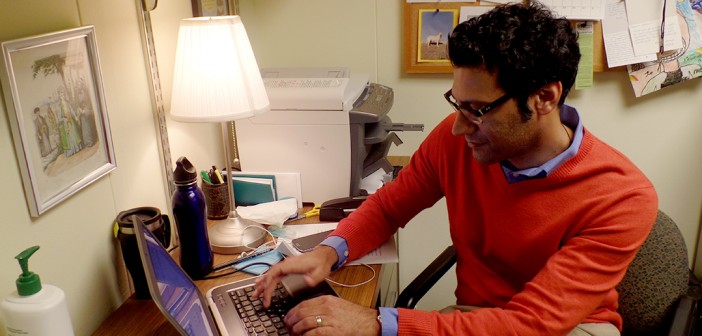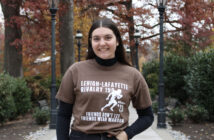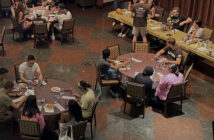Lehigh’s Center for Global Islamic Studies was launched in 2009 with the help of a grant from the Andrew W. Mellon Foundation. This funding allowed the center to invite a dozen visiting professors to Lehigh to teach new classes and conduct research in an expansive scope of fields, departments and disciplines relating to Islam.
Several different departments, including sociology and anthropology, political science, Africana Studies and global studies, comprise the center and offer courses as well as invite prominent scholars to lecture on Islamic topics and issues.
In 2012, the center presented 11 summer research grants and nine development grants to 13 Lehigh professors from eight different departments throughout the university. The center, however, is now looking to expand.
“At this stage, we are not a major or a minor,” said professor Robert Rozehnal, the director for the Center of Global Studies. “We don’t have a building on campus. We aren’t even a proper program in many ways. Instead, CGIS is an idea, aspiring to become reality.”
Khurram Hussain, a professor of religion studies, said the center aims to educate students about the “global dimensions” of Islam’s history, culture and religious aspects.
“We would like to offer the Lehigh community, both students and other faculty, a sophisticated, informed and educated treatment of Islamic civilization,” Hussain said.
Currently, the center offers courses such as elementary and intermediate Arabic, where students can both practice and enhance their communication skills, proficiency and use of the language.
“The center has also funded pre-doc and post-doc scholars, supported faculty research, expanded our library resources and sponsored numerous lectures, workshops and events,” Rozehnal said.
According to Rozehnal, the next challenge is to make the program a more permanent presence on campus. To do this, Rozehnal said that ongoing fundraising efforts will be essential. Hussain shared similar sentiments.
“We would like Lehigh to continue to grow and expand its faculty and other resources in the study of global Islam as an important part of its educational mission,” Hussain said.
The Yayasan Raja Zarith Sofiah Foundation, which is based in Johor, Southern Malaysia, recently visited Lehigh to attend the Malcolm X conference and investigate a potential collaboration with the center. The foundation is designed to foster a greater understanding of Islam and attempt to give an alternative view of the Islamic religion.
This potential collaboration, however, is still very much in the beginning stages, Rozehnal said.
In the future, the center hopes to establish several academic programs, such as faculty or student exchanges and a study abroad program for Lehigh students, at the Universiti Teknologi Malaysia, which is associated with the foundation.
“There is a whole bunch that can be done in collaboration with the foundation, including a greater emphasis on the study of Islam at Lehigh,” Hussain said. “We’re going back and forth, trying to figure out what it is that we can do but there is a lot of excitement about the possibility of this collaborative situation.”
Hussain said nearly one in four people in the world today is Muslim. So to fully understand the world, to become a truly global university, then this component of the world, this part of world civilization and world history, is an essential understanding for students and faculty.
The center hopes to shift its focus to the universal aspects of Islamic civilization, in particular South Asia and Africa where the majority of Muslims actually live. In addition, the center hopes to concentrate on areas of Muslim culture, such as art, poetry, music and architecture rather than what is portrayed in the media.
“Understanding Islamic civilization is a critical part of a 21st century education and CGIS aims to open new doors, new perspectives and new thinking for Lehigh students,” Rozehnal said. “What we’re doing here is really distinctive. We’re breaking the mold on the academic study of Islam.”
Toni Israel, ’17, a student that is active in the program, has aspired to study Arabic and Middle Eastern studies since high school.
“Even though Lehigh does not have a major or minor in Arabic or Middle Eastern studies, there have been efforts made to expand the program, which I fully support,” Israel said. “I highly recommend classes listed under the Center of Global Islamic Studies because they serve as tools for willing students to discuss different cultures and religions, inevitably altering their perspective, which I think is something us, students, should always strive to accomplish.”
Israel said that several other schools, such as Harvard University, University of Virginia, Princeton University and Syracuse University, have made great strides in terms of establishing Middle Eastern studies programs.
“Lehigh is behind in this field,” Israel said. “However, I am remaining optimistic for a bright future.”






Comment policy
Comments posted to The Brown and White website are reviewed by a moderator before being approved. Incendiary speech or harassing language, including comments targeted at individuals, may be deemed unacceptable and not published. Spam and other soliciting will also be declined.
The Brown and White also reserves the right to not publish entirely anonymous comments.